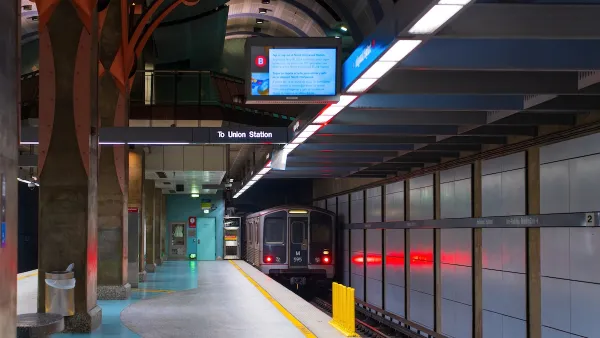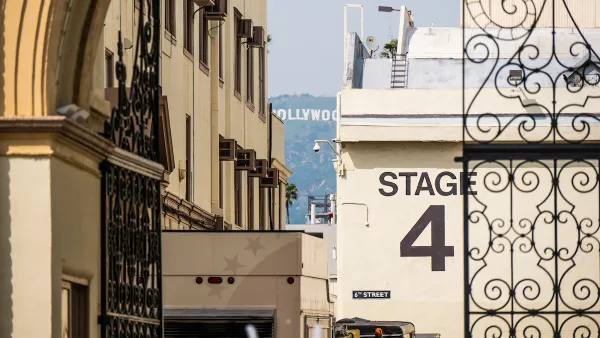In this excerpt from a new book on Los Angeles, L.A.-based architect Michael Maltzan reflects on the city, and how its clashes and evolving identity are part of why it represents the future of cities.
Excerpted from No More Play, Maltzan writes about growing up in Levittown and the constantly changing and complex Los Angeles.
"Observing Levittown on its own terms at such an early age erased any preconceptions I had of what defined a real city. I did not fixate on iconic or singular forms, nor was I fascinated with the everyday. Subtle qualities and diverse, ambient experiences stood out in the repetitious and seemingly monochromatic Levittown landscape. I found order and connective threads in the subtly shifting patterns across the façades of the tract houses, the calculated variations of shingle types, the periodic blooms of wild weeds in the storm sumps, the intense light in a place with immature trees, and the landscape of the in-between. My familiarity with Levittown caused me to distrust the traditional context of cities and instead focus on the equally compelling subtle characteristics of place. I developed techniques of discrimination and perceptual tool sets with which I could identify specific environmental qualities, rather than evaluating a city by the generic tools of traditional formal urban thinking.
I returned to Los Angeles two years later as a permanent resident and fell back into the sprawling environment, wondering if my newly minted education in architecture would help or blunt my capacity to understand subtleties in the urban setting. Perhaps I had previously romanticized the relentless terrain of Los Angeles. But by the time of my return, my perception of the scale of the city had changed. It was now an unending conveyor belt of diversity and iteration. As I look back, I recall memories from that time of successive, lovely, serpentine journeys through and across the city. As a montage of images and impressions, the memories have no beginning or end - just the pleasure I found while riding within an unspooling stream of experiences."
FULL STORY: No More Play

Planetizen Federal Action Tracker
A weekly monitor of how Trump’s orders and actions are impacting planners and planning in America.

Maui's Vacation Rental Debate Turns Ugly
Verbal attacks, misinformation campaigns and fistfights plague a high-stakes debate to convert thousands of vacation rentals into long-term housing.

San Francisco Suspends Traffic Calming Amidst Record Deaths
Citing “a challenging fiscal landscape,” the city will cease the program on the heels of 42 traffic deaths, including 24 pedestrians.

Amtrak Rolls Out New Orleans to Alabama “Mardi Gras” Train
The new service will operate morning and evening departures between Mobile and New Orleans.

The Subversive Car-Free Guide to Trump's Great American Road Trip
Car-free ways to access Chicagoland’s best tourist attractions.

San Antonio and Austin are Fusing Into one Massive Megaregion
The region spanning the two central Texas cities is growing fast, posing challenges for local infrastructure and water supplies.
Urban Design for Planners 1: Software Tools
This six-course series explores essential urban design concepts using open source software and equips planners with the tools they need to participate fully in the urban design process.
Planning for Universal Design
Learn the tools for implementing Universal Design in planning regulations.
Heyer Gruel & Associates PA
JM Goldson LLC
Custer County Colorado
City of Camden Redevelopment Agency
City of Astoria
Transportation Research & Education Center (TREC) at Portland State University
Jefferson Parish Government
Camden Redevelopment Agency
City of Claremont





























